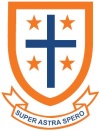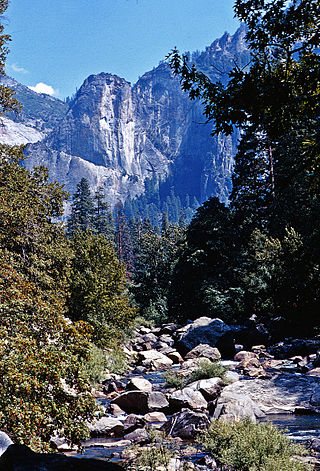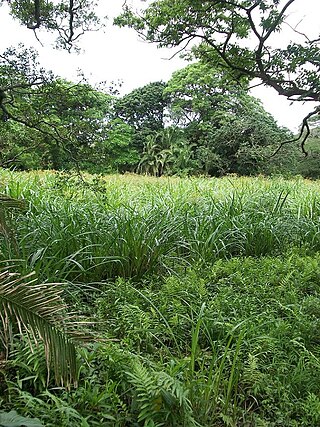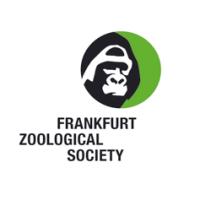The conservation movement, also known as nature conservation, is a political, environmental, and social movement that seeks to manage and protect natural resources, including animal, fungus, and plant species as well as their habitat for the future. Conservationists are concerned with leaving the environment in a better state than the condition they found it in. Evidence-based conservation seeks to use high quality scientific evidence to make conservation efforts more effective.
Fauna & Flora is an international nature conservation charity and non-governmental organization dedicated to protecting the planet's threatened wildlife and habitats. As the world’s first international conservation charity, Fauna & Flora has been shaping best practice in community-focused conservation for over 120 years. Today, the charity works closely with local conservation partners in almost 50 countries to protect habitats, revive the ocean, reduce extinctions, stop illegal wildlife trade, combat climate change and influence global policy and corporate sustainability.

The environmental movement in South Africa traces its history from the early beginnings of conservation, to the rise of radicalism and activism amongst local ecologists. Before the Chernobyl disaster and the fall of the Berlin Wall, there were very few green activist groups in the country. Koeberg Alert and the Dolphin Action and Protection Group are probably two of the oldest post-conservation groups.

Mokolodi Nature Reserve is a private not-for-profit game reserve in southern Botswana. Founded in 1994 by The Mokolodi Wildlife Foundation, it is situated on 30 square kilometres (12 sq mi) of donated land, 10 kilometres (6.2 mi) south of the capital Gaborone. The nature reserve is inhabited by a wide variety of indigenous African game, bird and reptile species, some of which are rare and vulnerable to the threat of extinction. The southern white rhinoceros herd at Mokolodi Nature Reserve is part of a national breeding programme, which contributes to the rebuilding of the national herd in Botswana.

Sydney Harold Skaife ('Stacey') D.Sc. FRSSAf. was an eminent South African entomologist and naturalist. His career and educational publications covered a wide field. Especially in his later years his main research interest was in social insects and the transitional phases in sociality, particularly in the Hymenoptera and Isoptera. He wrote detective novels using the pseudoynm Hendrik Brand.

The Wildlife Preservation Society of Queensland based in Queensland, Australia is a not-for-profit organisation which aims to engage communities to deliver conservation outcomes.
Humane Society International (HSI) is the international division of The Humane Society of the United States. Founded in 1991, HSI has expanded The HSUS's activities into Central and South America, Africa, and Asia. HSI's Asian, Australian, Canadian, and European offices carry out field activities and programs.
The Southern Oceans Seabird Study Association (SOSSA) is an Australian natural history research and conservation organisation. It is based in Wollongong, New South Wales. It was formally established in 1994 by members of the New South Wales Albatross Study Group Lindsay Smith and Harry Battam to be an umbrella organisation for groups involved with biological research on, and concerned about the environment of, the Southern Ocean. However, its origins go back to the start of long-term banding studies of albatrosses by Doug Gibson and Allan Sefton on the coast of New South Wales in the mid-1950s, with SOSSA continuing one of the longest-running albatross research programs in the world.

Treverton Preparatory School and College, situated in Mooi River, South Africa, cater to boys and girls of all faiths from Grades 0 to 12 and Post-Matric. As a member of the Independent Schools Association of Southern Africa (ISASA), Treverton is an inter-denominational Christian school founded on a Baptist heritage.Treverton Preparatory School and college is a public school and college

Conservation in the United States can be traced back to the 19th century with the formation of the first National Park. Conservation generally refers to the act of consciously and efficiently using land and/or its natural resources. This can be in the form of setting aside tracts of land for protection from hunting or urban development, or it can take the form of using less resources such as metal, water, or coal. Usually, this process of conservation occurs through or after legislation on local or national levels is passed.

Enviro-Capitalists: Doing Good While Doing Well is a 1997 book written by economists Terry L. Anderson and Donald R. Leal. In this book, Anderson and Leal further developed the concept of free-market environmentalism, which they first described in their 1992 book Free Market Environmentalism. The book argues that privatization of sectors like wildlife conservation, aquatic habitat development and environment-friendly housing is beneficial and environmental protection should be done by private entrepreneurs, not by the federal government. Enviro-Capitalists received the 1997 Choice Outstanding Academic Book Award.

Ilanda Wilds is a nature reserve along Amanzimtoti River in the town of Amanzimtoti, KwaZulu-Natal, South Africa. This small area of land contains various habitat types, ranging from steep rocky slopes to various riverine habitats, forest and small patches of grassland.

Gladys Kalema-Zikusoka is a Ugandan veterinarian and founder of Conservation Through Public Health, an organisation dedicated to the coexistence of endangered mountain gorillas, other wildlife, humans, and livestock in Africa.
The Okomu National Park, formerly the Okomu Wildlife Sanctuary, has been identified as one of the largest remaining natural rainforest ecosystem. Due to the high biodiversity seen in the Okomu National Park, a Wildlife Sanctuary was first established there.

The Frankfurt Zoological Society (FZS) is an international conservation organization founded in 1858 with headquarters in Frankfurt am Main, Germany. FZS focuses on maintaining biodiversity and conserving wildlife and ecosystems in protected areas and outstanding wild places. FZS leads and supports about 30 projects in 18 countries. Bernhard Grzimek, renowned German zoo director, zoologist, book author, editor, and animal conservationist in postwar West-Germany, served as president of the Frankfurt Zoological Society for over forty years.

The Caloola Club was a bushwalking and outdoors activity club that was based in Sydney, New South Wales, Australia, founded in 1945 and active until 1963, when it merged with the National Parks Association of N.S.W. The club was an influential part of the 'second wave' of the conservation and environmental movement in New South Wales during the post-WWII period.
Wildlife and Nature Protection Society is a conservation organisation. It is the third oldest non-governmental conservation organisation in the world and was instrumental in setting up Wilpattu National Park and Yala National Park.











